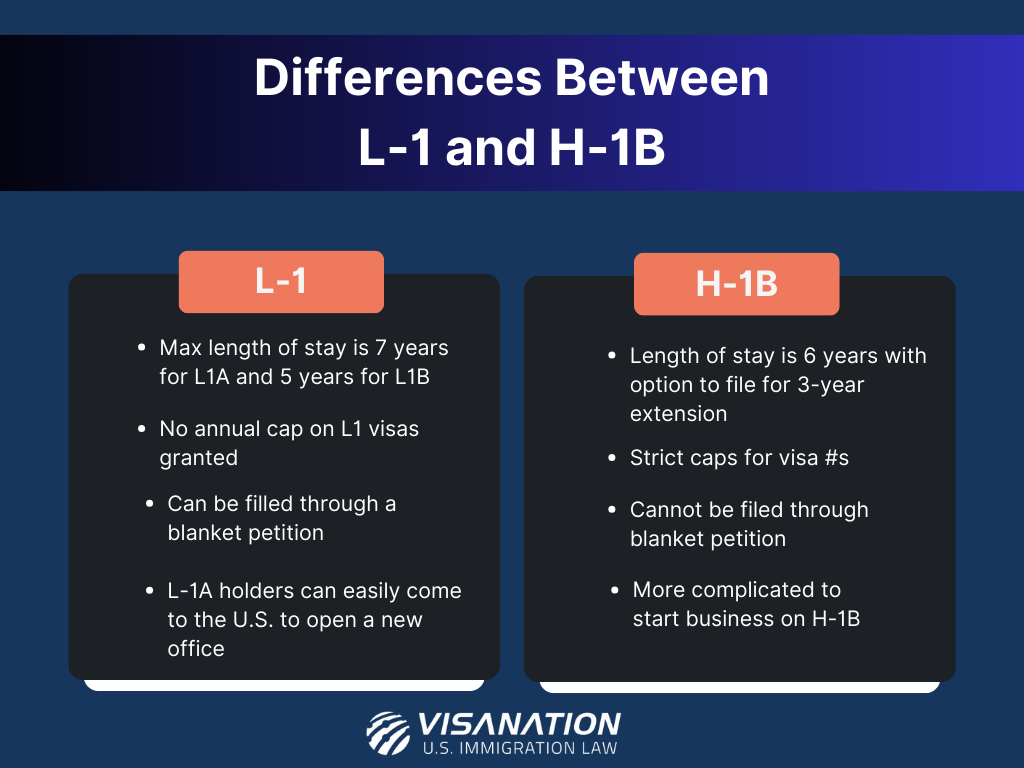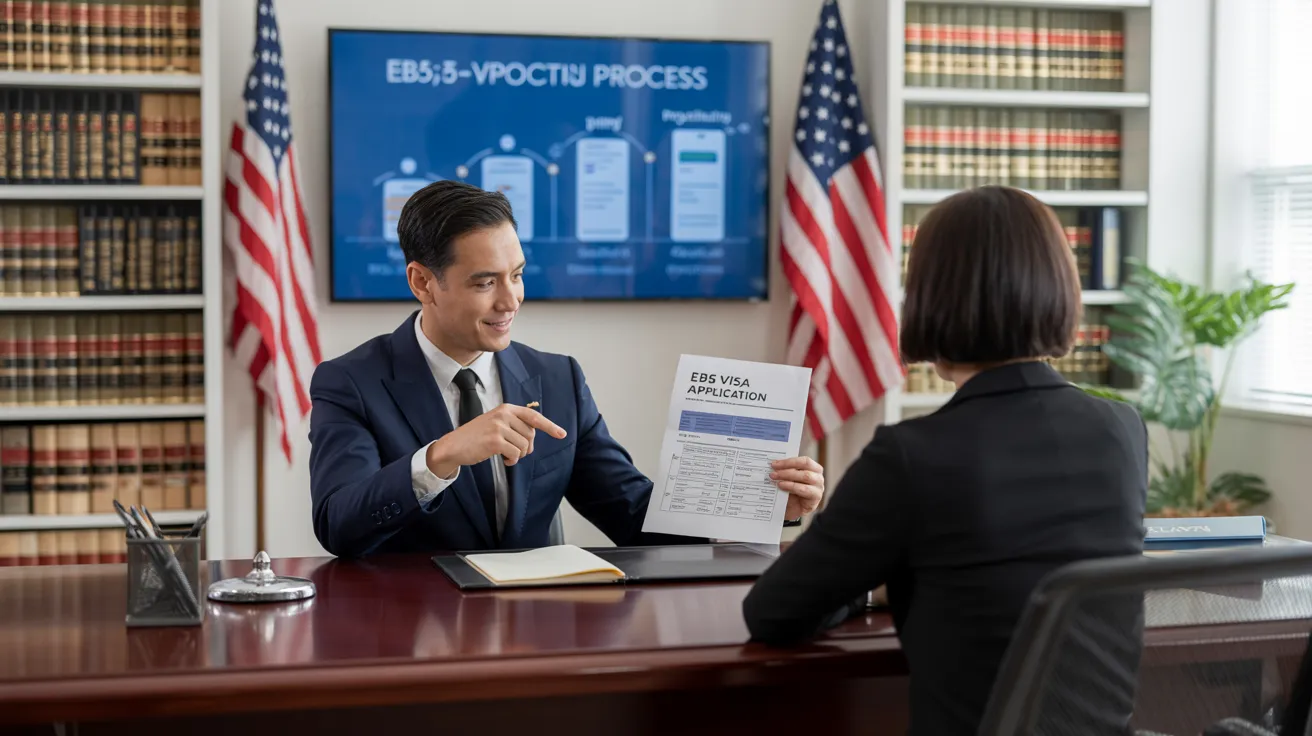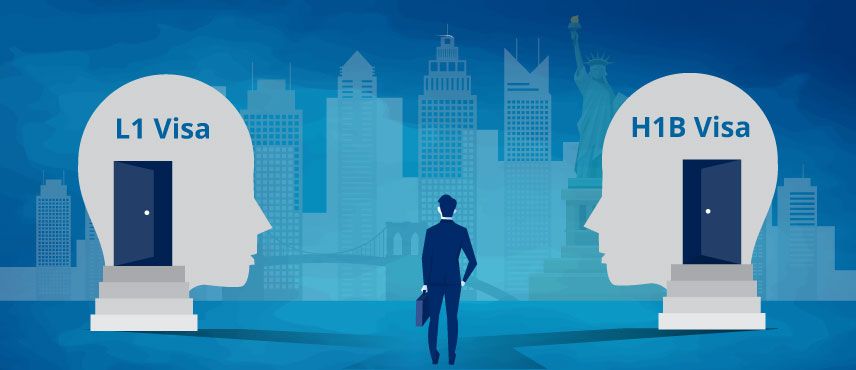Some Known Factual Statements About L1 Visa
Table of ContentsHow L1 Visa can Save You Time, Stress, and Money.Some Known Facts About L1 Visa.L1 Visa Fundamentals ExplainedThe Of L1 VisaThe Best Guide To L1 VisaThe Ultimate Guide To L1 Visa
Offered from ProQuest Dissertations & Theses Global; Social Science Premium Collection. (2074816399). (PDF). Congress. (PDF). DHS Workplace of the Assessor General. (PDF). (PDF). "Nonimmigrant Visa Data". Obtained 2023-03-26. Division of Homeland Safety And Security Workplace of the Examiner General, "Review of Susceptabilities and Prospective Abuses of the L-1 Visa Program," "A Mainframe-Size Visa Loophole".
U.S. Department of State. Gotten 22 August 2016. "Employees paid $1.21 an hour to set up Fremont technology company's computers". The Mercury Information. 2014-10-22. Retrieved 2023-02-08. Costa, Daniel (November 11, 2014). "Little-known temporary visas for foreign tech workers depress incomes". Capital. Tamen, Joan Fleischer (August 10, 2013). "Visa Holders Replace Employees".
More About L1 Visa
In order to be qualified for the L-1 visa, the international business abroad where the Beneficiary was employed and the U.S. firm need to have a qualifying relationship at the time of the transfer. The different sorts of qualifying connections are: 1. Parent-Subsidiary: The Parent indicates a company, corporation, or various other lawful entity which has subsidiaries that it owns and manages."Subsidiary" means a firm, firm, or other legal entity of which a parent possesses, directly or indirectly, more than 50% of the entity, OR owns much less than 50% but has monitoring control of the entity.
Example 1: Company A is integrated in France and employs the Beneficiary. Business B is integrated in the U.S. and desires to request the Beneficiary. Company A has 100% of the shares of Firm B.Company A is the Parent and Company B is a subsidiary. As a result there is a certifying connection between the two companies and Firm B need to have the ability to sponsor the Beneficiary.
Example 2: Company A is included in the united state and wishes to request the Beneficiary. Firm B is included in Indonesia and utilizes the Beneficiary. Business An owns 40% of Business B. The staying 60% is owned and managed by Company C, which has no relation to Firm A.Since Company A and B do not have a parent-subsidiary partnership, Business A can not fund the Recipient for L-1.
Firm A possesses 40% of Business B. The continuing to be 60% is owned by Company C, which has no connection to Business A. Nevertheless, Business A, by official agreement, controls and full manages Company B.Since Firm A possesses much less than 50% of Firm B however handles and controls the business, there is a certifying parent-subsidiary partnership and Company A can fund the Beneficiary for L-1.
Examine This Report on L1 Visa
Associate: An associate is 1 of 2 subsidiaries thar are both had and managed by the same moms and dad or person, or had and controlled by the very same team of individuals, in primarily the very same ratios. a. Instance 1: Firm A is included in Ghana and employs the Recipient. Business B is incorporated in the U.S.
Business C, additionally integrated in Ghana, has 100% of Company A and 100% of Firm B.Therefore, Firm A and Firm B are "affiliates" or sister business and a qualifying relationship exists between both companies. Company B need to be able to sponsor the Beneficiary. b. Example 2: Firm A is integrated in the united state
Firm A is 60% owned by Mrs. Smith, 20% owned by Mr. Doe, and 20% possessed by Ms. Brown. Firm B is integrated in Colombia and currently employs the Beneficiary. Firm B is 65% possessed by Mrs. Smith, 15% had by Mr. Doe, and 20% had by Ms. Brown. Company A and Business B are associates and have a certifying connection in two different ways: Mrs.
The L-1 visa is an employment-based visa group developed by Congress in 1970, permitting international companies to move their supervisors, executives, or key employees to their U.S. operations. It is typically referred to as the intracompany transferee visa. There are two main sorts of L-1 visas: L-1A and L-1B. These kinds appropriate for workers employed in different positions within a firm.

Furthermore, the beneficiary has to have worked in a managerial, exec, or specialized worker placement for one year within the 3 years preceding the L-1A application in the international company. get started For brand-new workplace applications, international work should have remained in a supervisory or executive ability if the beneficiary is involving the United States to work as a supervisor or exec.
Rumored Buzz on L1 Visa

If given for a united state business operational for greater than one year, the initial L-1B visa is for approximately 3 years and can be extended for an additional two years (L1 Visa). On the other hand, if the U.S. business is freshly established or has been operational for less than one year, the preliminary L-1B visa is released for one year, with expansions offered in two-year increments
The L-1 visa is an employment-based visa category established by Congress in 1970, permitting multinational firms to transfer their managers, executives, or key personnel to their United state operations. It is frequently referred to as the intracompany transferee visa.
How L1 Visa can Save You Time, Stress, and Money.
Additionally, the beneficiary should have operated in a managerial, executive, or specialized staff member setting for one year within the 3 years coming before the L-1A application in the foreign business. For new workplace applications, international work should have remained in a managerial or executive capacity if the beneficiary is pertaining to the USA to function as a supervisor or exec.
for as much as 7 years to oversee the operations of the united state affiliate as an exec or click here manager. If released for a united state company that has actually been operational for greater than one year, the L-1A visa is initially granted for as much as three years and can be extended in two-year increments.
If given for an U.S. firm operational for more than one year, the initial L-1B visa is for up to three years and can be expanded for an extra 2 years. Conversely, if the U.S. company is recently developed or has actually been operational for less than one year, the initial L-1B visa is provided for one year, with extensions readily available in two-year increments.